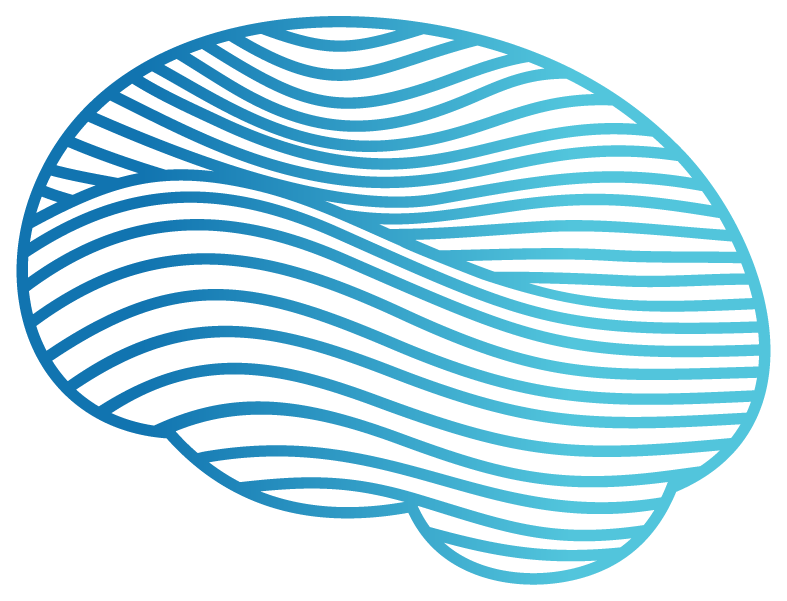MeRT Treatment in Tracy, CA for Autism, Depression, PTSD, TBI & More
Our Speciality
What is MeRT®?
MeRT® (Magnetic e-Resonance Therapy) is a more personalized and advanced form of TMS (Transcranial Magnetic Stimulation). Unlike traditional TMS, MeRT® combines EEG (electroencephalogram) and EKG (electrocardiogram) data to create a tailored treatment protocol. This allows for precise targeting of brain areas that need stimulation, improving brain communication and function. While TMS generally uses standard brain region targeting, MeRT®‘s unique approach customizes each session based on individual brainwave patterns and heart function, enhancing therapeutic outcomes. Here’s how it works:
Steps of MeRT®

What is an EEG?
An EEG (electroencephalogram) is a test that measures electrical activity in the brain. It uses small electrodes attached to the scalp to detect and record brainwave patterns that helps identify abnormal brain activity. An EEG provides valuable insights into brain function, aiding in the development of treatment plans, especially in therapies like MeRT®.
What is an EKG?
An EKG (electrocardiogram) in MeRT® is used to monitor heart function by measuring electrical activity in the heart. This data helps assess brain-heart coherence, ensuring optimal synchronization between brain and heart during treatment. The EKG helps guide the therapy, as disturbances in this relationship can affect overall well-being and treatment effectiveness. It’s integrated into the MeRT® process to ensure a comprehensive approach to patient health.
What is TMS?
TMS (Transcranial Magnetic Stimulation) is a non-invasive therapy that uses magnetic fields to stimulate specific areas of the brain. It is commonly used to treat conditions like depression by altering brain activity to restore normal functioning. In MeRT®, TMS is guided by EEG data to target precise areas of the brain that need regulation, helping improve brain communication and function for various neurological and psychiatric conditions.

Evaluation
Conduct a EEG and EKG to assess brainwave activity and brain-heart coherence. These diagnostic tests help identify irregularities and guide the treatment approach.

Analysis and Treatment Protocol
Using data from the EEG and EKG, a scientifically driven and individualized treatment plan is created. This protocol is designed to restore optimal brain function and improve communication between neural pathways.

MeRT® Treatment
With the treatment protocol established, sessions are conducted five days a week. During each session, a magnetic coil applies gentle, targeted stimulation to specific brain areas. Treatments last about 30 minutes to 45 minutes, with magnetic pulses delivered intermittently. Patients remain seated comfortably, experiencing only mild sensations, and are asked to close their eyes during stimulation.

Progress Evaluation
Every two weeks, progress is reassessed using updated EEG and EKG tests. The treatment protocol is adjusted based on these results to ensure continued improvement. For optimal outcomes, six to eight weeks of treatment is typically recommended. While compliance with the regimen is crucial, results may vary by individual, and treatments beyond FDA-cleared uses for depression and OCD are considered “off label.” Research continues to support MeRT®'s effectiveness across various conditions.
Conditions Treated by MeRT®
MeRT® is used to address a wide range of conditions, including but not limited to:
- Autism Spectrum Disorder (ASD)
- Depression
- Obsessive Compulsive Disorder (OCD)
- Anxiety
- Post-Traumatic Stress Disorder (PTSD)
- ADHD
- Traumatic Brain Injury (TBI)
- Sleep disturbances
- Cognitive and memory impairments
Common Benefits of MeRT®
- Enhanced sleep quality
- Greater relaxation and uplifted mood
- Improved memory retention
- Enhanced focus and attention
- Sharper mental clarity
- Increased resilience to stress
- Strengthened social interactions
- Boosted motivation
- Reduced cravings for substances like alcohol or drugs
- Better adaptability to change
- Lowered anxiety levels
- Improved interpersonal communication
- Heightened self-confidence
Absolute contraindications for MeRT®
- Pacemaker
- Defibrillator
- Vagal nerve stimulator
- VP shunt / magnetic intracranial shunts
- Deep brain stimulator
- Epidural cortical stimulator
- Steel shunts/stents
- Cranial metal fragments (i.e. shrapnel, excluding titanium)
- Cochlear implant
- Aneurysm clips, coils, pipelines flow diversion
- Pregnant or breast feeding
- Primary brain cancer / metastatic legions in brain (unless palliative care)
- Magnetic dental implants
- Implanted cardio-verter defibrillators (ICD)
- Ocular implants
Relative contraindications
(These cases require individualized attention to ensure safety and effectiveness, but they do not automatically disqualify a person from receiving the therapy)
- History of seizure or seizure disorder
- Titanium shunts/stents
- Spinal cord stimulator
- Hearing aids
- Ferrous cortical implants
- Magnetic ink tattoo
- Bipolar disorder type I/II
- Baha implant
Every time I fly in to visit my grandson, he has shown improvement. He uses more words, he sits still longer, and he even started sitting at the table more while he eats. He usually is jumping around on the couches and tables with food in his hand. Now he seems to be more calm
